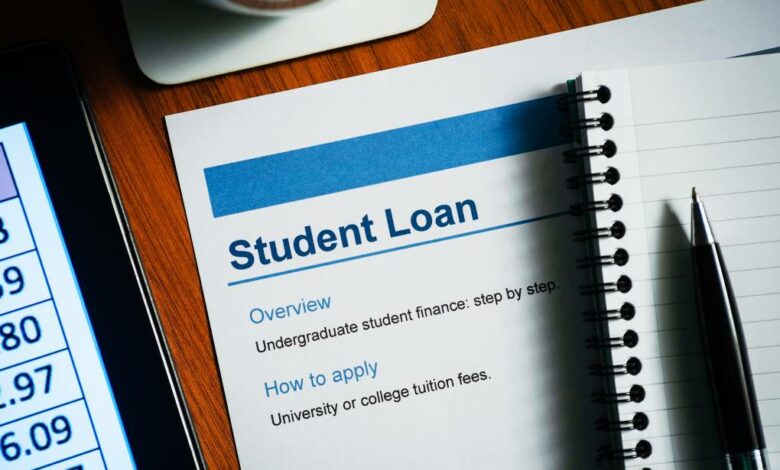Yet another FAFSA problem: Many noncitizens can’t fill it out

In reporting this story, NPR spoke with families, counselors and advocates who shared similar problems. Among those impacted are permanent residents, green card holders or undocumented parents without a Social Security number.
Since the form opened in January, Azer, Cordova Ramirez and her mom have tried to complete the online application more than 20 times. Each time, they get the same error message, directing them to a phone number for any questions.
“We’ve called the number. They don’t have any solutions for us,” says Azer. When they call, they get an automated message that provides old and outdated information. When she’s lucky enough to get a live person on the line, often after waiting on hold for hours, they tell her to try filling out the form again later.
“Do you understand how frustrating that is?” she says. “You act like we have all the time in the world to just sit down and be like ‘Ah, time to apply for the FAFSA right now.”
Following NPR’s reporting, the U.S. Education Department said it was aware of the problem and that staff were meeting daily to resolve it. They recommended that students with parents who aren’t citizens should wait to fill out the form online, but were unable to provide any timeline for the fix.
It’s the latest in a series of problems with the FAFSA this year. The form rolled out months late, setting colleges scrambling to get financial aid packages out in time. Even with the extra time to get it correct, NPR reported recently on a technicality the department overlooked – potentially costing students almost $2 billion.
Concerns about bad advice
The implications of this latest problem are huge, preventing families from getting essential access to money for college, or even making informed enrollment decisions about how much a college education will cost them.
In the meantime, there have been troubling reports of potentially risky workarounds – like asking students to take photos of their parents’ passports and email them to the Ed Department.
“First of all, that assumes [the parents] have one,” says Bill Short, who runs a scholarship program for first-generation students at Saint Lawrence University in Canton, N.Y. Beyond that, he adds, it raises serious concerns about online privacy:
“Emailing a sensitive document like that is about as insecure as it gets. You might as well make [the required paperwork] into a paper airplane and toss it out the window.”
The long wait continues
The Education Department did not respond to repeated requests for comment on the timetable for a fix, or about the reports of families being told to send photos of their passports through email.
In past years, the general guidance with FAFSA has been for students to complete it as soon as possible. Amid the current delays, some universities have pushed back enrollment deadlines from the usual May 1 to June 1, while others have made their deposits refundable.
Meanwhile, the frustrations are mounting for students and their families as they watch “everybody else get a head start on you,” says Short.
“You’re still standing in the starting line waiting for someone to say, ‘OK, now you can go,’ ” he adds. “Your perception is: ‘By the time I finally get there, they’re going to cross the finish line, and the money’s going to be gone.’ ”
Cordova Ramirez feels that frustration deeply.
“I have done everything,” she says. “I’ve taken the extracurriculars. I’ve tried to make a good application for myself for colleges to be like, ‘Yes, that’s someone we want.’”
Every day, she asks herself the same questions, over and over: “Am I going [to college] now? Am I going to the school that I want? Am I going to pursue the career that I want? Am I going to be something in life?”
Audio produced by: Janet Woojeong Lee and Mallory Yu
Edited by: Steve Drummond
9(MDAxOTAwOTE4MDEyMTkxMDAzNjczZDljZA004))




